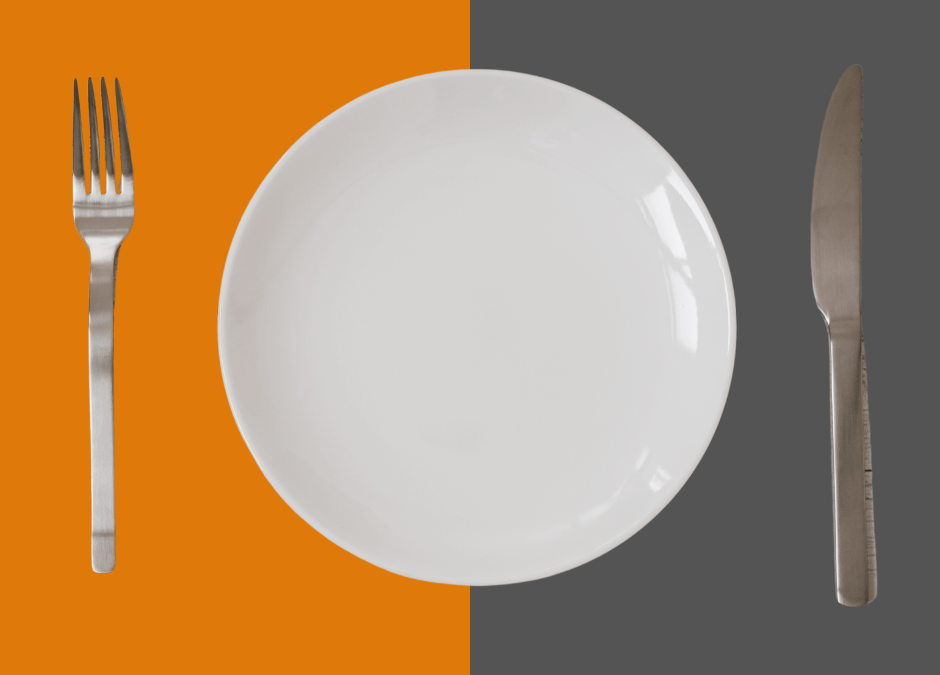After treatment ends, it’s common to want to “do your diet differently”. You feel like your nutrition needs have changed, so why wouldn’t you want to shake things up?
The problem is, you’re not sure where to start.
That’s challenging enough on its own, but in my opinion, the even bigger challenge is maintaining the changes you DO put into place.
Here’s how it typically goes.
You decide to cut down on some foods or add more of other foods, and in some instances, you just leave the food alone and keep eating the same way.
Regardless of how you go about it, you don’t trust yourself to make the “right” choices, so you go all in on a super restrictive diet that makes the limitations for you. . .all you have to do is follow the dang thing!
Until you can’t eat one more forkful of kale.
Soon you end up doing what’s easiest, although not always the healthiest, and that makes you feel guilty.
Why is it so hard to maintain the diet changes you know are so important to your breast health?
After all, you’re doing it for a great reason – to help manage your recurrence risk – so why for the love of all things healthy can’t you just stay on track?
Two reasons:
- You’re trying to follow a diet that you’re only following because you had breast cancer
- You’re cutting out every, single food you love only because you had breast cancer
“I had breast cancer” drives every decision you make about food.
You end up eating a certain way not because you “want” to, rather, because you think you “have” to.
Severe diet restrictions, cutting out foods you love, and trying to convince yourself you enjoy what you’re eating isn’t a diet approach you can live with forever.
And honestly, think about this; when you eliminate sugar, caffeine, dairy, red meat, carbs, fats and every other food that makes you panic, you leave yourself very few options for making satisfying meals and snacks.
Here are four things you need to help counteract this unbalanced approach to your diet so you can eat with peace, not panic, and enjoy your food again!
YOU NEED THESE!
VALIDATION: Confirmation of the nutrition information you’ve already gained from your reading and research is liberating! You can stop second-guessing because you have solid, evidence-based data backing up your decisions.
EDUCATION: Filling in your knowledge gaps is a sure-fire way to help you make confident diet decisions based on understanding how food supports your breast and overall health. Getting answers to your questions gives you clarity.
GUIDANCE: An eating plan customized to your needs (likes, dislikes, energy producers vs energy drainers, etc.) helps you stop second-guessing every bite and actually enjoy your food.
REASSURANCE: Knowing you don’t have to cut out foods you love brings such relief! Next level peace of mind? Learning how to optimize those foods so you feel your best for life.
______________________________________________________________________________
Thanks for reading my blog post! Inspired and/or enlightened by what you read? Be sure to subscribe so you never miss a new post.
Subscribe by CLICKING HERE to get your FREE copy of The Five Foods Survivors Should Eat
CLICK THIS LINK and watch my 2-minute Peaceful Plate program video!
Follow me on Instagram @hormone.breastcancer.dietitian
This information is for educational purposes only and is not intended as medical advice. Please consult your dietitian or doctor for guidance specific to your needs.
______________________________________________________________________________


Hi, Cathy!
This was such a good read. I really thought your advice to make diet changes based on education and guidance is practical. I also think your comment on how a severely restricted diet leads to few options to eat was relatable.
Do you have any book recommendations on healthy nutrition?
Hi Jackie, thank you so much! Are you looking for books on breast cancer nutrition specifically?